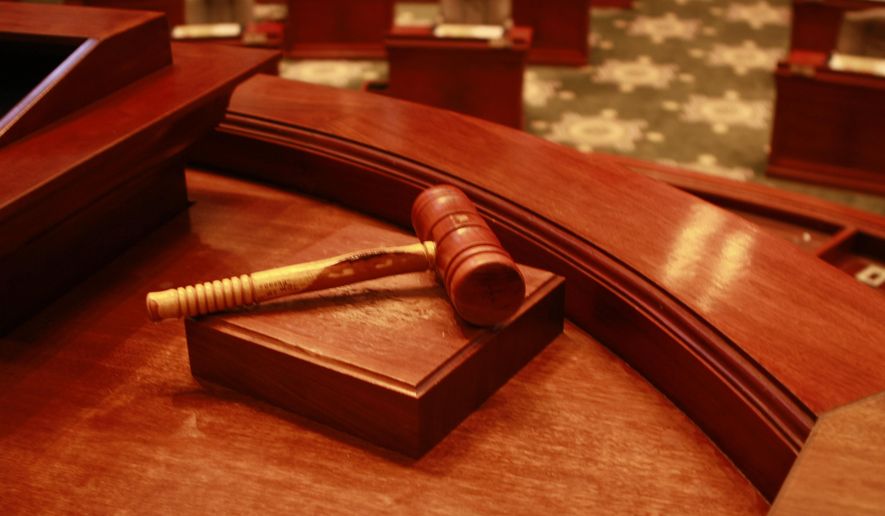Elected judges in Wisconsin don’t have to automatically recuse themselves from cases involving campaign donors, the state’s Supreme Court ruled Thursday, rejecting a petition from more than 50 retired judges to impose the new rule.
The retired judges had asked the high court to set a dollar limit that would trigger an automatic recusal for circuit, appellate judges and supreme court justices in the state.
But the justices rejected the petition 5-2.
“If a judge does not act with impartiality and integrity, that judge will answer to the people of Wisconsin on election day,” said Justice Rebecca Bradley, one of those who dismissed the petition.
Howard Schweber, a law professor at the University of Wisconsin-Madison, said the issue over recusals in Wisconsin comes after several investigations into Gov. Scott Walker’s campaign probing allegations of unlawful coordination.
One case, which made its way to the Supreme Court, involved a lobbying group that allegedly backed Mr. Walker’s campaign as well as some of the sitting justices.
Some activists had pushed for those justices to recuse themselves, but none did.
“Historically, Wisconsin has always had a reputation of a very clean government including very clean courts. This, by contrast, is among the most lenient ethical standards of any court in the country,” said Mr. Schweber.
Rick Esenberg, president of Wisconsin Institute for Law & Liberty, which opposed the rule change, said the justices’ ruling showed they respected residents’ First Amendment political speech rights.
“Save for extreme circumstances, we ought to trust judges to know when campaign support or opposition warrants recusal,” said Mr. Esenberg.
The issue could be brought to the U.S. Supreme Court, though Mr. Schweber said he hadn’t seen any move in that direction yet.
In a 2009 case, Caperton v. A.T. Massey Coal Co., the U.S. Supreme Court held that if a state court’s conflicts of interest were severe enough, it could violate the Due Process Clause of the federal Constitution.
“One interesting question is the situation in Wisconsin … does that rise to the level of a constitutional violation? And the answer is, as so often the case, is maybe,” said Mr. Schweber.
The question over recusals and potential conflicts of interest came up during Supreme Court Justice Neil Gorsuch’s confirmation hearing last month.
But unlike other federal courts, the U.S. Supreme Court is exempt from ethics rules regarding recusals and the decision on removal is left up to the justices.
“If this were to happen at the U.S. Supreme Court, the outrage would be enormous,” said Mr. Schweber. “This is one of the reasons we don’t elect Supreme Court justices.”
• Alex Swoyer can be reached at aswoyer@washingtontimes.com.




Please read our comment policy before commenting.